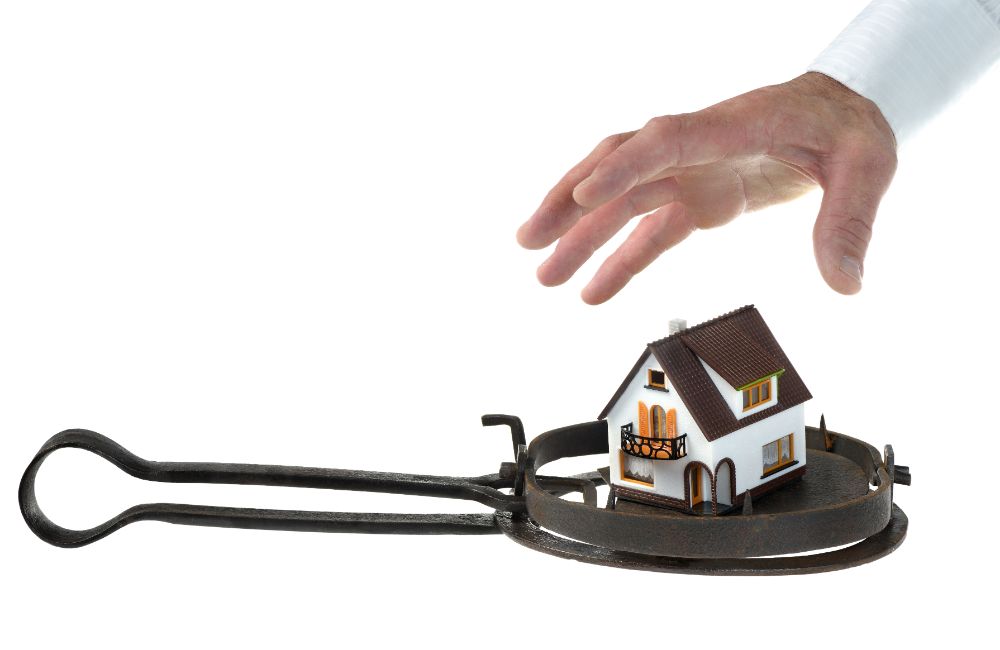When you’re buying or selling a home, you want to ensure you’re not being taken advantage of by people who want to take your money and your property. It can be difficult to know what type of scams to watch out for, but here are some of the most common ways real estate scammers try to steal from people looking to purchase their next home. From bogus offers to contracts with hidden clauses to seemingly-genuine bids that are fronts for loansharking operations, it can be difficult to tell what’s on the level and what’s not when you’re making real estate transactions. Here are some of the most common real estate scams you need to watch out for.
Types of Real Estate Scams
Escrow Wire Fraud
Escrow fraud can be perpetrated in many ways, but wire fraud is one of the most common. The scammer calls up his victim and tells him he needs to pay escrow money for his house. The victim pays over an amount (typically $1,000 or more) via wire transfer. Unfortunately, that wire goes directly into a scammer’s bank account; instead of into an escrow account for that home. To prevent wire fraud, you should never pay anyone (or any business) through Western Union or MoneyGram since they don’t offer protection against fraud as credit cards do.
Loan Flipping
Loan flipping happens when a buyer finances a home purchase with one lender and sells it quickly to another for a higher price. The original lender is left holding a loan on the property they no longer own. Your real estate agent must tell you if loan flippers finance your offer when you apply for a mortgage. Be aware that frequently, loan-flippers are not being upfront about it. You could get into hot water with Fannie Mae or Freddie Mac by buying a property that’s still subject to the loan payment. As a result, if something goes wrong, you will be unable to legally get paid back since these entities do not own your property.
Foreclosure Relief
Foreclosure relief scams offer to get you out of debt. Sounds too good to be true, right? That’s because it is. Foreclosure relief scammers will ask for thousands of dollars upfront. They’ll tell you that they can help stop your foreclosure, but they need money from you first—and they won’t actually provide any services in return. In fact, by paying them now, you may just put yourself further into debt and behind on your payments as these scammers run off with your money. If you’re struggling with a mortgage payment and want to avoid foreclosure, there are free resources available to help homeowners work through financial troubles and even prevent foreclosure if possible.
Rental Scams
Rental Scams are one of the most common real estate scams, and it happens when a landlord accepts payment from a tenant but doesn’t give them keys to their new home. Women often fall victim to this scam when they are looking for apartments and don’t want to rely on anyone else to move them. Landlords may tell prospective tenants that they need to pay in advance or give money as a deposit before getting keys. If you find yourself in such a situation, try asking to see your rental agreement—and if you’re not shown one, don’t sign anything. If you feel as though something is wrong, contact your local police department or district attorney’s office and ask them about steps you can take next.













